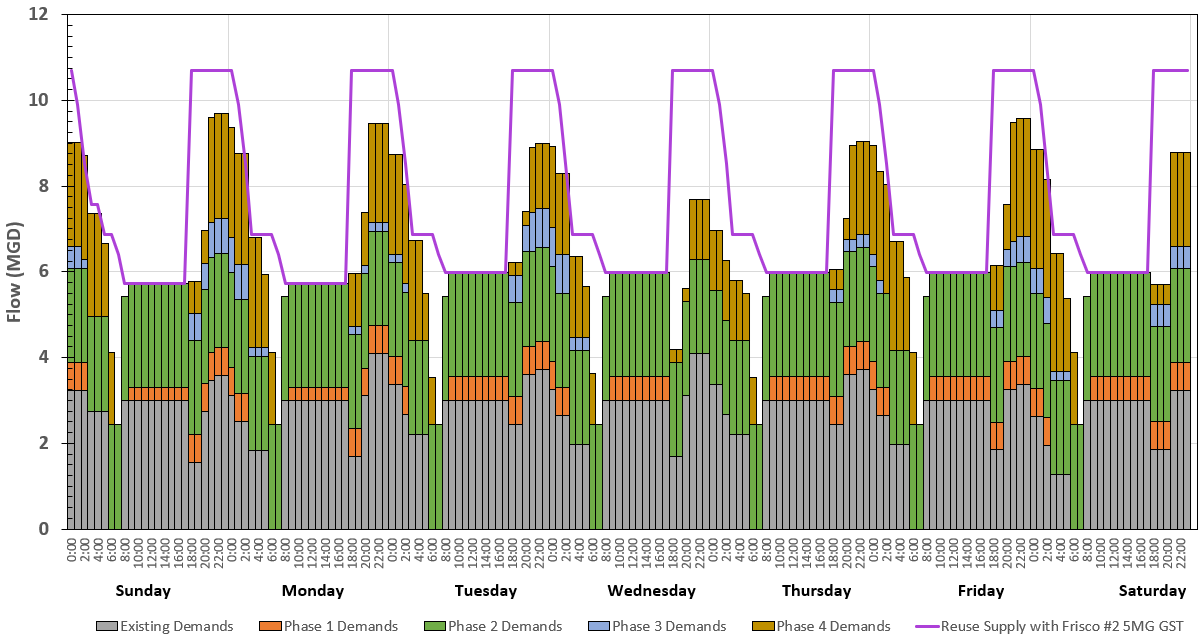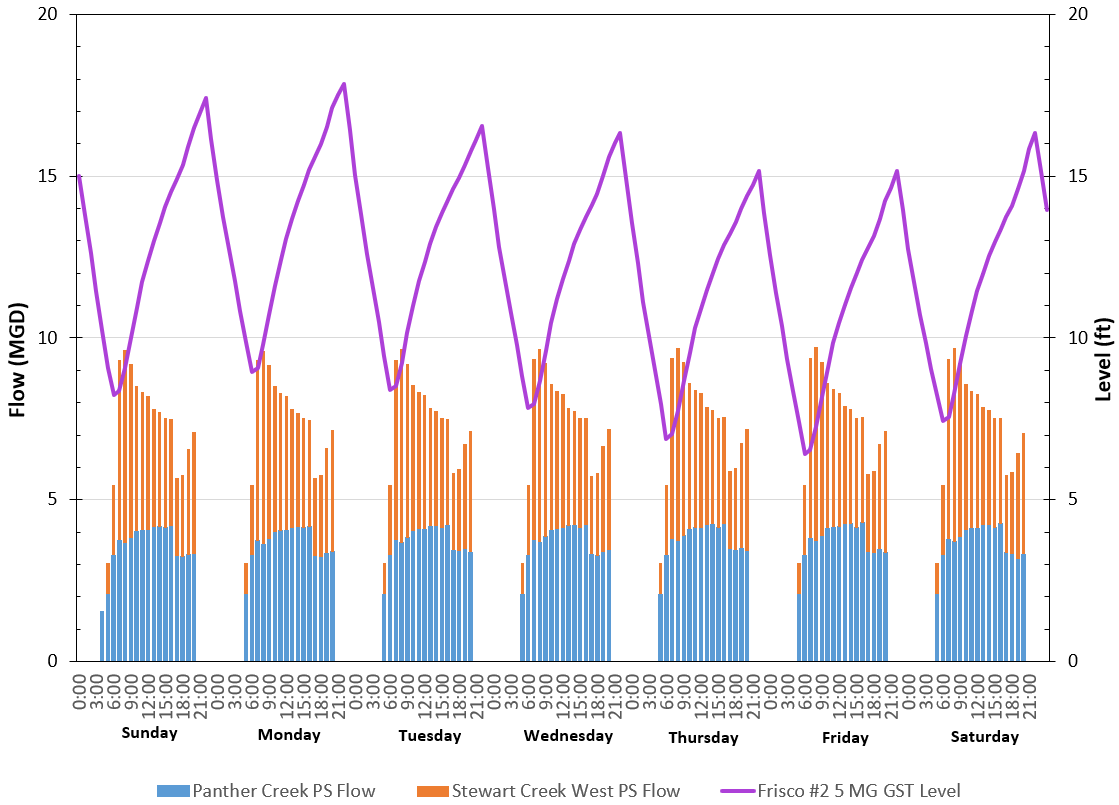Frisco Goes Even Greener with Repurposed Reuse Facilities for New PGA Headquarters
 When the project is complete, Frisco’s existing water reuse system, shown by the black lines above, will be significantly expanded, as shown by the blue lines.
When the project is complete, Frisco’s existing water reuse system, shown by the black lines above, will be significantly expanded, as shown by the blue lines.
When the new PGA of America headquarters opens in Frisco in 2022, its championship golf courses won’t just look their distinctive lush green — they’ll underscore the city’s commitment to green development and sustainability.
To accommodate the irrigation needs of the 600-acre development, the City of Frisco is investing $27.4 million in significantly expanding its water reuse program. Innovative design in keeping with the City’s spirit of reuse, recycle, repurpose will allow Frisco to double its reused water capacity in order to supply the PGA and the surrounding developments. This is being achieved largely by adapting existing facilities and by bringing a shuttered ground storage facility that previously was used for treated water back into service for recycled water.
Frisco, a fast-growing community north of Dallas with a population now over 200,000, has spent almost two decades developing its water reuse program. Already, it serves the grounds of the Dallas Cowboys training facilities at The Star, along with city parks and Frisco Independent School District campuses.
The City buys its drinking water from the North Texas Municipal Water District, which also operates Frisco’s two wastewater treatment plants, Stewart Creek West and Panther Creek. To be fiscally responsible, Frisco continues looking for more cost-effective ways to reuse the water treated at those facilities. This approach has two key benefits: Reducing the amount of potable water the City needs to purchase and providing an asset the City can sell to customers for irrigation at a reduced rate.
The reuse system also helps the City reduce its environmental impact. And it offers reuse customers a drought-proof water source because they don’t have to ration their outdoor watering during Texas’ inevitable dry spells and watering restrictions.
Because of the Professional Golfers’ Association of America decision to move its national headquarters from Florida to Frisco, the City enlisted Freese and Nichols to determine how to meet the new location’s needs and then to incorporate the changes into the existing reuse master plan.
The PGA complex, which will include two 18-hole golf courses, a nine-hole course, practice areas and a resort hotel, is part of a 2,500-acre mixed-use development that expects to need 2.2 MGD of reuse water for irrigation. Instead of relying on traditional options of designing and building new large reuse facilities, our team developed an innovative approach: repurposing existing facilities that weren’t being used because they were part of a potable water system that the City had long outgrown. The City had a 5-million-gallon (MG) ground storage tank that was built in the 1990s when Frisco had just one-fourth its current population. The facility no longer served the potable water system but had more than adequate capacity for the recycled system’s current and future demands. And the tank sits at an elevation that could produce the long-term desired pressures for the City’s lower reuse pressure plane. The repurposed ground storage facility allowed the City to schedule pump run times that eliminated continuous pumping. This greatly reduced energy use and gave customers more flexibility for using the recycled water.
This project has yielded several key lessons:
Think creatively: Looking at existing assets resulted in a facility being repurposed, which eliminated the need to build something new.
Consult your plan: The existing master plan included components of the approach the City ultimately chose; reordering and adapting them for long-term conditions created a better comprehensive solution.
Look for simplicity: Designing a storage system that allows gravity to drain the storage tank when pumping facilities are not in use provides operational flexibility and saves the City money.
(Figures 1 and 2 below show how the increased capacity will meet demand. Figure 3 shows where the system’s expansion will be located when construction is complete.)

Taking a no-longer-used 5-million-gallon (MG) treated water ground storage tank and repurposing it for the City’s recycled water system provided more than enough capacity to meet reuse needs (above), as well as long-term desired pressures (below).




